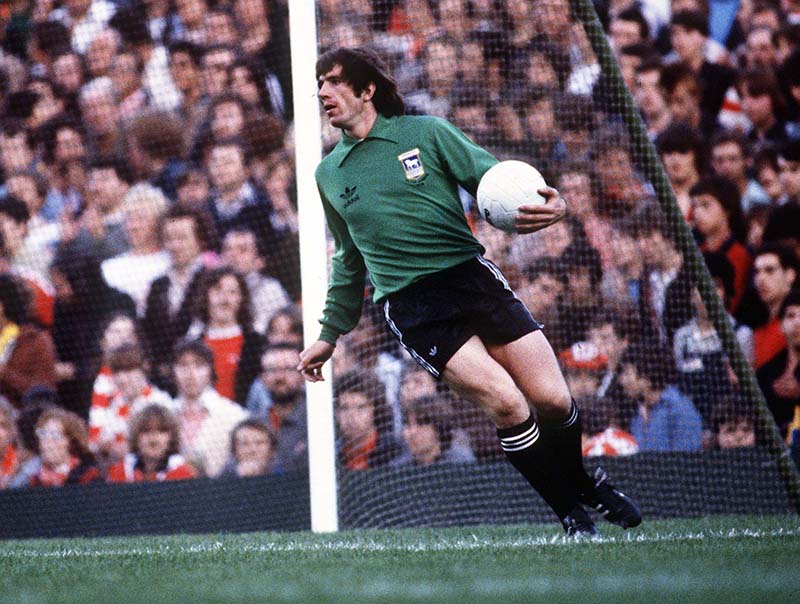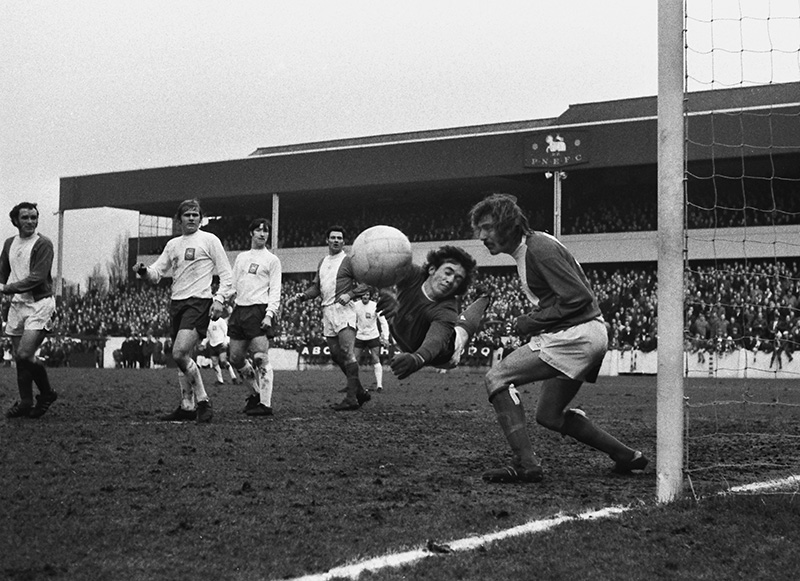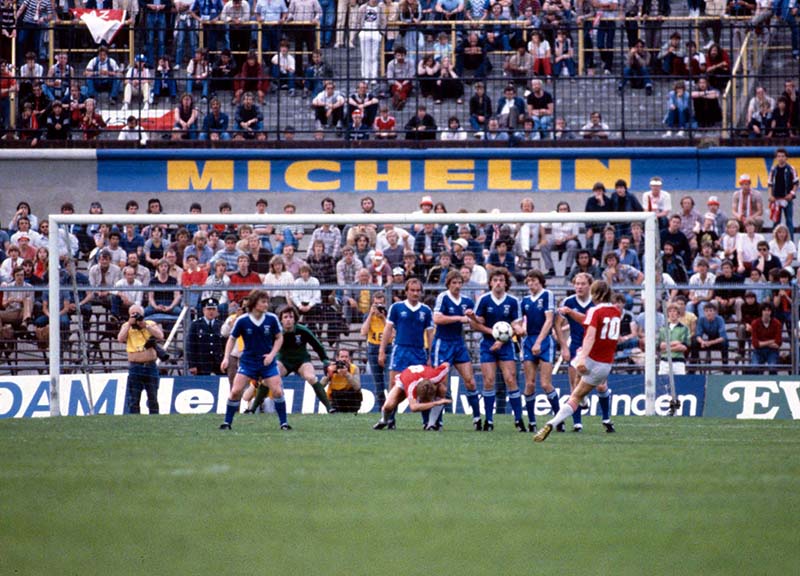
With his clean sheet in the FA Cup final and a man-of-the-match performance to win the UEFA Cup, the Cannock-born keeper contributed to the biggest days in the club’s history
January 29 ~ Holder of the record for the most penalties saved in a single League season, Paul Cooper signed his first professional contract in the summer of 1971, joining Division Two Birmingham City from Sutton Coldfield Town. In January 1972 he got his chance through injury then found himself back in favour for a successful promotion run-in, as well as the FA Cup semi-final defeat to Leeds.

The 18-year-old found his opportunities limited and in March 1974 went on loan to Ipswich, signing permanently that summer and primarily featuring for the reserves during his first full season. After a 3-0 home defeat on the opening day of 1975-76 with Laurie Sivell in goal, Bobby Robson gave Cooper the nod. His first two seasons as a Portman Road regular saw Town continue to challenge at the top of Division One, finishing sixth and then, after a genuine title push, third. While Robson’s side fell to 18th in 1977-78, Cooper recovered from a back injury to keep a clean sheet in the club’s first ever FA Cup final as they beat Arsenal 1-0.
A return to league form lifted the Blues to sixth the next season – alongside runs to the quarter-finals of the FA Cup and Cup-Winners Cup, ended by Barcelona – and third in 1979-80, when that spot-kick record was set. Cooper’s eight saves from ten included two in a home draw with Derby, the Match of the Day cameras capturing his technique of leaning to one side and swinging his arms.
By mid-March 1981, Ipswich were top of the League and had reached the semi-finals of both the FA Cup and the UEFA Cup, with dominant home performances against Aris Salonika, Bohemians Prague and Widzew Lodz preceding a 7-2 aggregate win over Saint Étienne. While Town failed to reach a second FA Cup final, losing 1-0 to Manchester City, and seven defeats in ten saw the title go to Aston Villa, they beat Cologne 2-0 on aggregate to reach the UEFA Cup final. Having cruised to a 3-0 win over Alkmaar at Portman Road in the first leg, after four minutes in Amsterdam that lead was a seemingly unassailable 4-0 thanks to Dutchman Frans Thijssen. But a four-goal fightback meant Town also needed John Wark’s first-half strike to secure their first European trophy, with Cooper named man of the match after several vital saves as Alkmaar piled forward.

Robson remained at Ipswich for one more season – another second-place finish – before being rewarded with the England job. With Peter Shilton and Ray Clemence already providing a selection headache, the presence of his former manager did not open any international doors for Cooper, one of the few members of that successful Ipswich team not to play for their country.
Town rapidly declined and were relegated in 1985-86. Cooper stayed for their first season in the Second Division since 1968 but after play-off defeat moved to relegated Leicester on a free transfer. Now aged 33, he played 39 games before joining Manchester City as back-up in March 1989; he was almost immediately called upon to help City secure promotion to Division One, before playing his final top-level games that autumn.

His final move was to Division Four Stockport, and a trip to Carlisle in February 1991 would be his last match before an elbow injury forced retirement. With the score 0-0 in the second half, Cooper palmed away yet another penalty – only for the centre-back in front of him to put through his own net seconds later.
Photos: Paul Cooper playing for Ipswich against Arsenal in 1978 (Colorsport); for Birmingham in 1972 (Colorsport); after winning the FA Cup in 1978 (Getty); in the second leg of the UEFA Cup final in 1981 (Colorsport); for Manchester City in 1989 (Colorsport)
This article first appeared in WSC 406, February 2020. Subscribers get free access to the complete WSC digital archive – you can find out more here
